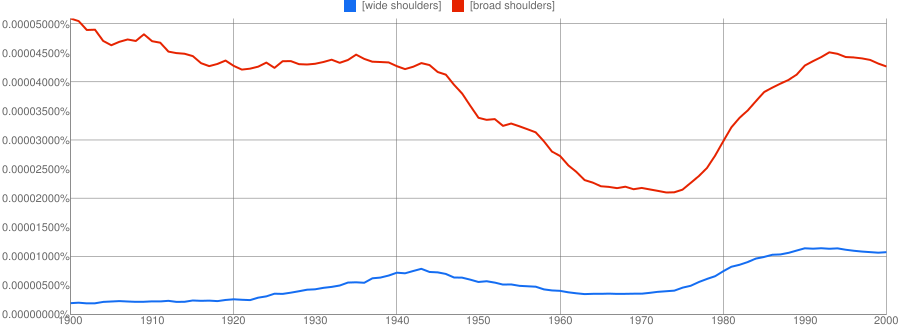I realize that the OP has accepted the answer in the duplicate question of their own doing:
uses for the words BROAD & WIDE But this is the page where new answers can be submitted, so here's mine
ADJECTIVE
1. Of great or more than average width:
‘a wide road’
1.1 (after a measurement and in questions) from side to side:
‘how wide do you think this house is?’
1.2 Open to the full extent:
‘his eyes were wide with fear’
‘She gave him a wide grin as she opened the door to the passenger seat.’
1.3 Considerable:
‘But at this point, political analysts expect the Conservatives to fail by a wide margin.’
2. Including a great variety of people or things:
‘a wide range of opinion’
2.1 Spread among a large number of people or over a large area:
‘It gained wide recognition among bloggers.’
2.2 Considering or dealing with the more general aspects of a situation, issue, etc.:
‘This debate raises wide issues of political theory concerning the proper role of the state.’
(Oxford Living Dictionaries)
The list continues with the adverb, and noun meanings. But it also includes a helpful list of common phrases, to which I'll add some others
- wide awake
- wide of the mark
- wide open
- wide-angle
- wide-eyed
- wide apart
- worldwide
- wide blue yonder
- a wide variety
- a wide range of (far more common than broad range of
- a wide following (far more common than broad following)
With the exception of the last two, all the phrases above are "fixed", you cannot substitute the term wide with broad. These expressions, and idioms have to be learnt by heart (memorised). There is no trick, no rule, no reason why someone could not say broad of the mark, or broad open except that no one does. Likewise nobody says in wide daylight, the correct idiom is ‘in broad daylight’. Always.
Instances where ‘wide’ and ‘broad’ are interchangeable
wide appeal (blue) vs. broad appeal (red)
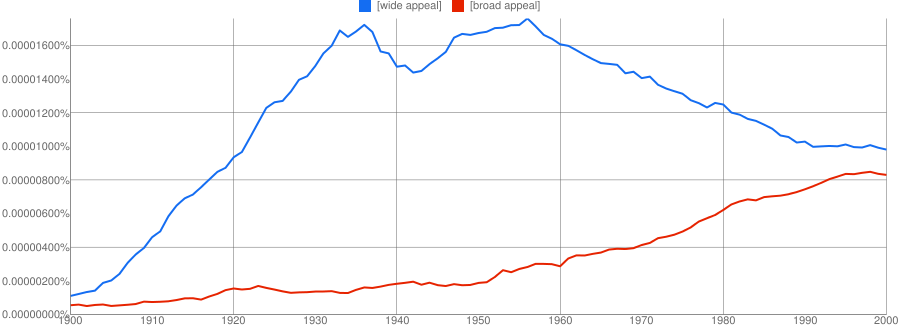
wide attraction vs. broad attraction
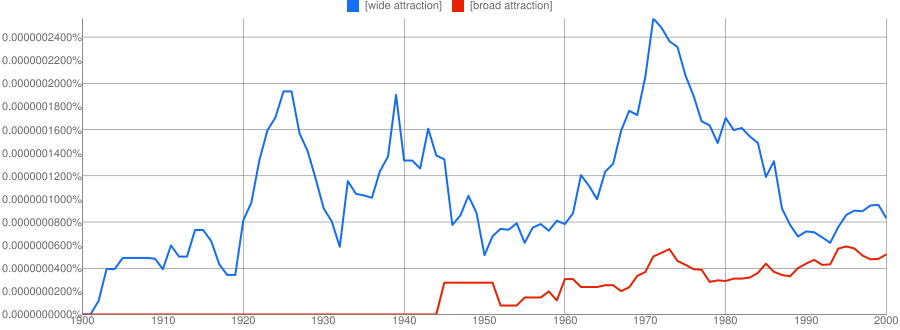
wide area vs. broad area
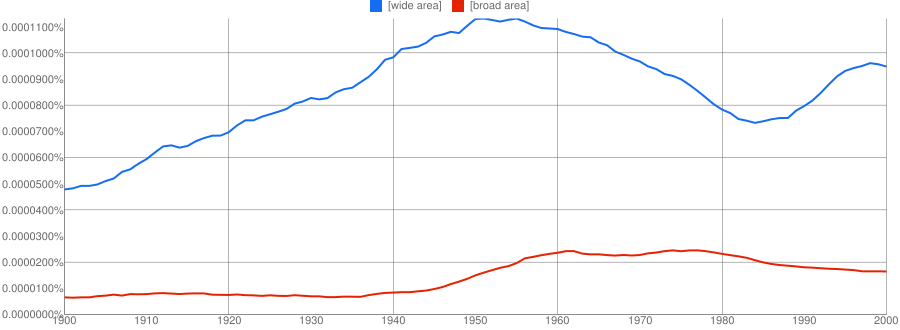
wide brim vs broad brim
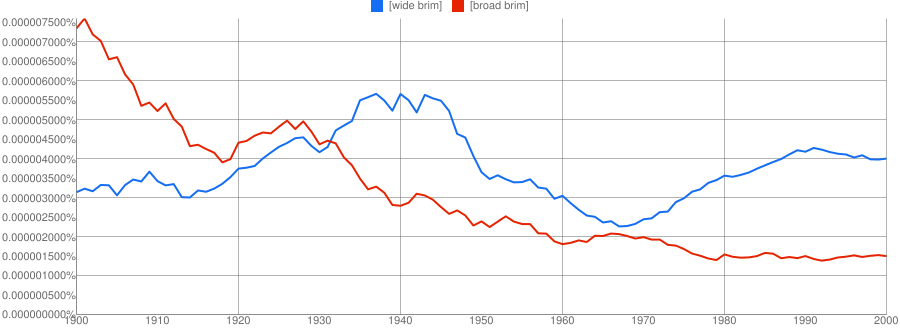
wide river vs broad river
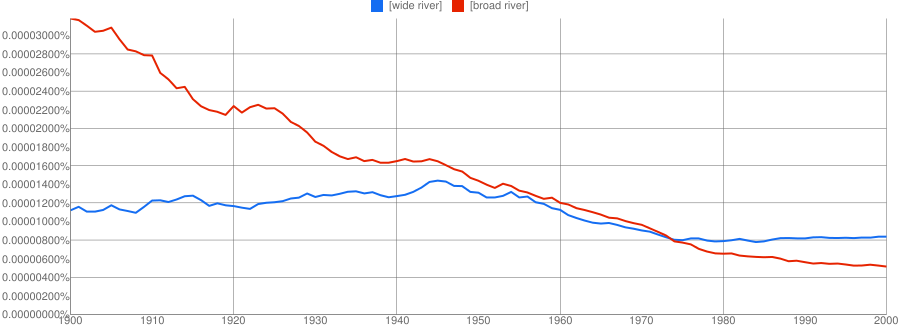
wide road vs broad road
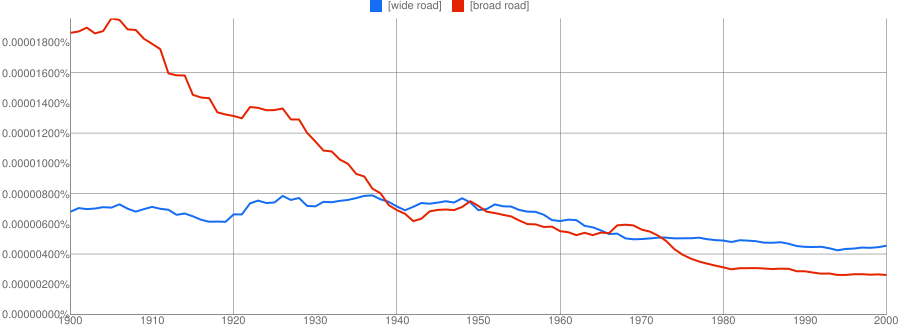
(adv) widely applied vs. (adv) broadly applied
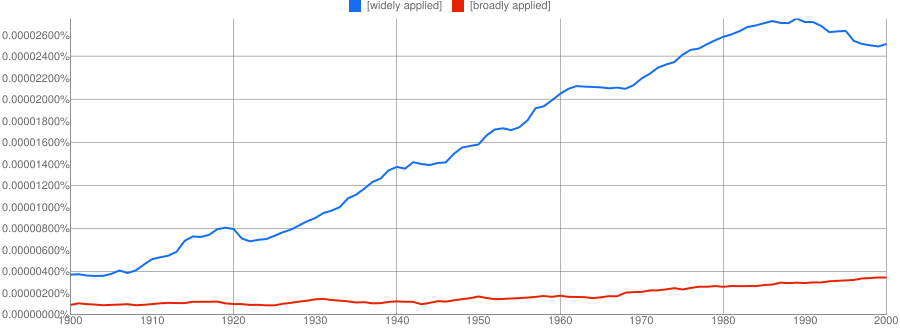
For parts of the body, ‘broad’ (red line) is preferred
wide face (blue) vs broad face (red) and the Ngram chart shows that the second collocation is more common.
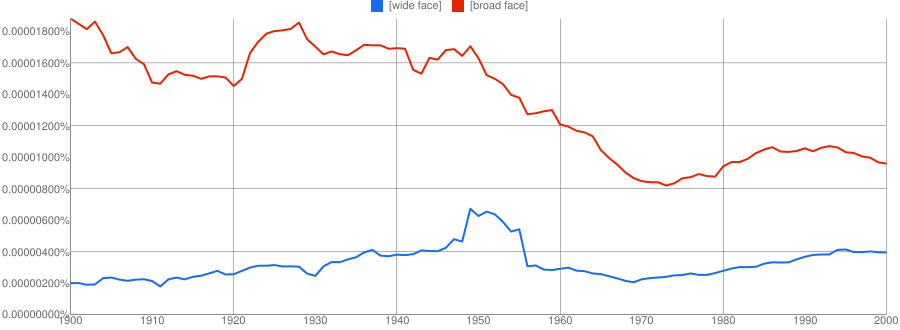
wide feet vs broad feet
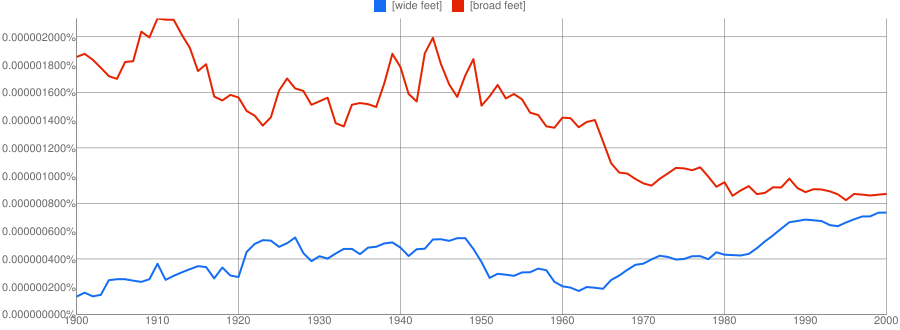
wide nose vs. broad nose
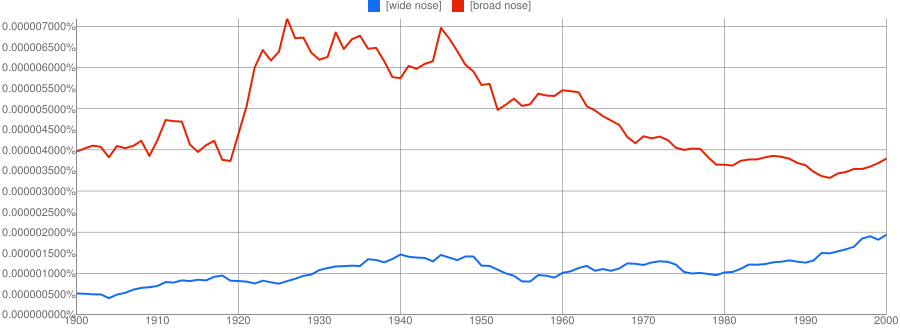
wide shoulders vs. broad shoulders
